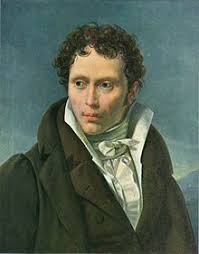On Thinking For Yourself *

Reading is merely a surrogate for thinking for yourself; it means letting someone else direct your thoughts. Many books, moreover, serve merely to show how many ways there are of being wrong, and how far astray you yourself would go if you followed their guidance. You should read only when your own thoughts dry up, which of course will happen frequently enough even to the best heads; but to banish your own thoughts so as to take up a book is a sin against the Holy Ghost; it is like deserting untrammeled nature to look at a herbarium or engravings of landscapes.
It may sometimes happen that a truth, an insight, which you have slowly and laboriously puzzled out by thinking for yourself could easily have been found already written in a book; but it is a hundred times more valuable if you have arrived at it by thinking for yourself. For only then will it enter your thought-system as an integral part and living member, be perfectly and firmly consistent with it and in accord with all its other consequences and conclusions, bear the hue, color and stamp of your whole manner of thinking, and have arrived at just the moment it was needed; thus this will stay firmly and for ever logged in your mind. This is a perfect application, indeed explanation, of Goethe's lines:
"What you have inherited from your forefathers you must first win for yourself if you are to possess it."
For the man who thinks for himself becomes acquainted with the authorities for his opinions only after he has acquired them and merely as a confirmation of them, while the book-philosopher starts with his authorities, in that he constructs his opinions by collecting together the opinions of others: his mind then compares with that of the former as an automaton compares with a living man.
A truth that has merely been learnt adheres to us only as an artificial limb, a false tooth, or at most like transplanted skin; but a truth won by thinking for ourself is like a natural limb: it alone really belongs to us.
* Excerpts from Parerga and Paralipomena: Short Philosophical Essays, Volume II
Reading is merely a surrogate for thinking for yourself; it means letting someone else direct your thoughts. Many books, moreover, serve merely to show how many ways there are of being wrong, and how far astray you yourself would go if you followed their guidance. You should read only when your own thoughts dry up, which of course will happen frequently enough even to the best heads; but to banish your own thoughts so as to take up a book is a sin against the Holy Ghost; it is like deserting untrammeled nature to look at a herbarium or engravings of landscapes.
It may sometimes happen that a truth, an insight, which you have slowly and laboriously puzzled out by thinking for yourself could easily have been found already written in a book; but it is a hundred times more valuable if you have arrived at it by thinking for yourself. For only then will it enter your thought-system as an integral part and living member, be perfectly and firmly consistent with it and in accord with all its other consequences and conclusions, bear the hue, color and stamp of your whole manner of thinking, and have arrived at just the moment it was needed; thus this will stay firmly and for ever logged in your mind. This is a perfect application, indeed explanation, of Goethe's lines:
"What you have inherited from your forefathers you must first win for yourself if you are to possess it."
For the man who thinks for himself becomes acquainted with the authorities for his opinions only after he has acquired them and merely as a confirmation of them, while the book-philosopher starts with his authorities, in that he constructs his opinions by collecting together the opinions of others: his mind then compares with that of the former as an automaton compares with a living man.
A truth that has merely been learnt adheres to us only as an artificial limb, a false tooth, or at most like transplanted skin; but a truth won by thinking for ourself is like a natural limb: it alone really belongs to us.
* Excerpts from Parerga and Paralipomena: Short Philosophical Essays, Volume II
No comments:
Post a Comment
Comments are moderated and generally will be posted if they are on-topic.